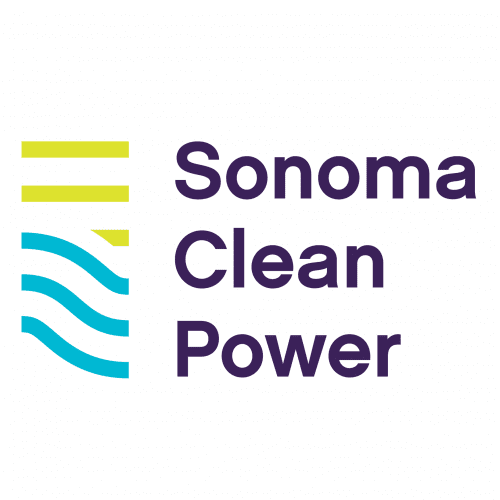
Press release: More local renewable energy coming to Northern California
Sonoma Clean Power to drive development of small-scale renewable generation installations through a new standard offer program.
August 8, 2014
NEWS RELEASE: More local renewable energy coming to Northern California
Sonoma Clean Power to drive development of small-scale renewable generation installations through a new standard offer program
Santa Rosa, CA – Sonoma Clean Power announced their ProFIT program on Monday to bring local renewable energy online. Sonoma Clean Power, a Community Choice Aggregator (CCA),is the new locally controlled electricity provider in Sonoma County that operates as a not-for-profit, independent agency run by Sonoma County and cities that have elected to join.
ProFIT is a renewable energy purchasing program, whichsets the rules and price for Sonoma Clean Power to purchase roughly five megawatts of electricity from small-scalewholesale renewable electricity projects within their service territory.
“We are pleased to offer our ProFIT program as a way to encourage the installation of new, local, clean energy facilities in Sonoma County,” said Amy Rider, Program Manager with Sonoma Clean Power. “We opted for a standard offer approach for small projects to manage participant expectations, simplify administration and keep the pool of candidates and technologies diverse.”
Under ProFIT, Sonoma Clean Power is offering contracts to local renewable projects smaller than one megawatt and one-fifth of the total program capacity is reserved for projects smaller than 250 kilowatts (kW). All baseload generating facilities receive a 10-year contract, while other generating facilities receive a 20-year contract. A base price of $0.095 per kilowatt-hour is given to all facilities, with the following bonus payments available:
- $0.005 per kilowatt-hour for systems smaller than 250 kilowatts
- $0.01 per kilowatt-hour for local business[1]
- $0.01 per kilowatt-hour for use of previously developed locations[2]
Bonus payments are made during the first five years of a project’s contract. In the event that an eligible resource meets all three bonus criteria, the bonuspayout period shall be extended for an additional five years – ten years in total. And just yesterday, the Sonoma Clean Power Board approved an additional $0.005 per kilowatt-hour bonus for local job training.[3]
“The program was developed through a public process that received valuable input from dozens of stakeholders, including the Clean Coalition,” said Rider.
The Clean Coalition provided recommendations on program design before, during, and after the formal public outreach process. ProFIT reflects a number of our recommendations regarding project viability, application criteria, timelines and milestones, deposits, pricing incentives related to preferred project characteristics, forecasting requirements and penalties.
“Our recommendations were intended to maximize the rapid deployment of local renewables, in relation to the specific goals and procurement budget of Sonoma Clean Power,” said Sahm White, the Clean Coalition’s Economics and Policy Analysis Director.
“It’s great to see a CCA, like Sonoma Clean Power, offer customers the option not just to purchase renewable energy – but local renewable energy,” said Craig Lewis, Founder and Executive Director of the Clean Coalition. “This program shows the potential for CCAs to further expand customer choice with a standard offer program.”
All applications received byAugust 22will be given a queue position by lottery, continuing on a first come, first served basis thereafter. For additional details, please visit Sonoma Clean Power’s proFIT homepage.
[1] Local Business shall be defined as follows: The developer and/or prime contractor has a place of business (i.e.possesses a business license) and headquartered in Sonoma County,and; at least 75% of the non-management project-specific labor resides inSonoma County. Documentation supporting this requirement will berequired prior to payment for bonus amount will be issued.
[2] Previously developed locations are those “areas that either contain or havecontained structures or were used for parking, loading or storage related toa previous or existing land use” as defined by Sonoma County Permit andResource Management Department. Previous use must have occurred withinthe last 10 years.
[3] The job training bonus is available for local contractors of eligible resources that offer at least 20% of project-specific job hours must be staffed by an apprenticeor intern who resides in Sonoma County and is participating in one of thefollowing: a State of California Division of Apprenticeship Standards approved program; or a paid internship that earns class credit in association with arenewable energy educational program.
###
Contact:
John Bernhardt
john@clean-coalition.org
(703) 963-8750
About the Clean Coalition
The Clean Coalition is a nonprofit organization whose mission is to accelerate the transition to renewable energy and a modern grid through technical, policy, and project development expertise. For further information on the Clean Coalition, please visitwww.clean-coalition.org.

